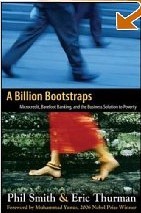BYOB (Bring Your Own Bag): 600 of Them!Sitting at the table with members of the marketing and research departments of such organizations as Walt Disney World, Procter & Gamble, Duke University’s School of the Environment, Leo Burnett Company, and Unilever Research Department made me feel very much like a little pastor’s wife from the Midwest (although I hadn’t been a pastor’s wife in decades, and I’d traveled to more than 55 countries, developing an expanding worldview as I journeyed). A grant of $3500 had given me the opportunity to participate in a week’s worth of training in qualitative market research under the aegis of the RIVA Training Institute in Washington, D.C. Over five intense days at RIVA, we were introduced to focus-group moderator theory and practices. Immediately after being introduced to a concept, we were put into a practical exercise with evaluators, with videotapes going, and with peer observers giving feedback. Without a doubt, it was daunting, but at the same time, some of the best learning I’ve ever experienced in my entire lifetime. My last assignment was to work up a solo focus-group format, the purpose of which would be: To explore the qualities in pro athletes valued by women (so that managers will have consumer information to plan public relations campaigns for their clients and with advertisers). For my final grade, I sat in the focus-group room with a random bunch of strangers, the videotapes going, and my trainers and colleagues behind the one-sided glass, furiously taking notes for my group evaluation. To my relief, I received high marks and commendations as well as my Master Moderator Certificate indicating that I had completed 30 hours of intensive training in the theory and practice of fundamental techniques of focus-group moderating. Needless, to say, I am sold on the power and importance of gathering other people’s opinions when I am about to venture forth on a new creative endeavor. We are at the place in the Global Bag Ladies Project (still working on the “Guy” side of this—grocery bags that men will buy and carry) where I have conducted about 10 informal focus-groups, inviting consumers to give me their input on sample American-supplied, Made-in-China, large canvas shopping bags. I feel like I’ve been carrying my Global Bag Ladies Project bag in my car, leaving the bags on the living-room coffee table, and lying in wait to whip them out whenever an unsuspecting human innocently crosses my path. I discovered that women would really like to purchase an African-made and African-looking shopping bag. I discovered that some men and women don’t shop for food for two weeks like I do and would like a medium-sized bag. I am discovering that men would really like a guy-friendly bag. I discovered, once again, that the focus-group process is essential before any major venture is launched or attempted. Linda Renner, one of my Global Bag Lady colleagues, e-mailed today from Nairobi that some 56 grocery bags have been stitched together, and that she will be bringing them home with her when she returns to the States later this summer. Before she returns, however, what we need you to do is this: I need you to buy the latest
evolution of
the Global Bag Ladies Project shopping bag, and then I need you to give me feedback on the Project. Let me first explain the purposes of the Global Bag Ladies Project. 1. Our first goal is to encourage church people to stop using plastic and paper shopping bags and to start using sustainable shopping bags that are carried to and from shopping centers. For the basic facts about the negative ecological footprint of paper and plastic bags, go to the Hungry Souls Web site, www.hungrysouls.org, and check out Soulish Food Issue 7-4, Bag Lady’s Crusade: Plastic Bags. This gives some basic data, which I will not repeat here. Now, you can advertise Whole Foods bags, Jewel bags, Trader Joe’s bags by carrying their cheap, rather smallish bags—or you can purchase Global Bag Ladies Project bags and carry them to stores. (Actually, this is a donation; you will be receipted for your donation minus the raw cost of the bag.) The margins of these donations will help to underwrite the cost of setting up the first phase of our project, which I figure to be $12,000. This includes getting the GBLP Web site up, finding a designer to build a corporate identity logo, trademarking the logo, renting the adjacent office for $175 a month, and paying for the African-made shopping bags. Good Report: We have been promised our first donation of $250 toward underwriting a graphic designer. Think
of this as the fee we do NOT charge to send
Soulish Food to you weekly (some years) biweekly (this year) 2. Our second goal is to work together with Kenyan women to begin the first development model for the Global Bag Ladies Project. We plan to assist in underwriting a Sewing Center at Nairobi Evangelical Graduate School of Theology (NEGST). The first trainees will be women who are wives of grad students, theological students themselves, or wives of pastors. With basic business skills and the availability of small start-up loans, many of these women can form cottage industries to supplement ministry incomes. 3. Eventually, we hope to supply Fair Trade bags made worldwide over our GBLP Web site from existing bag-making enterprises or from start-ups we encourage through microcredit loans supported by the sale of grocery bags. (If you want more information about microcredit, check out www.opportunity.org). Since more than 3,000 microcredit banks and institutions already exist, we plan to link with existing lending-to-the-poor organizations. I strongly feel that the Global Bag Ladies Project fulfills one of the human hungers the ministry of Hungry Souls identifies in many souls: the hunger to contribute in meaningful ways to alleviate the suffering of the world. In addition, the GBLP provides a simple means of helping us all to function as good stewards of this beautiful earth God has created. We can’t as individuals do anything about monitoring multi-nationals, but we can BYOB (Bring Your Own Bag) for shopping. So here’s the deal. Hopefully, we will be offering African-made shopping bags in quantities next year. I figure we need to sell 600 American-supplied bags (at an average of $20 margin each) to raise $12,000. So for any donation of $20-$50, we will send you a bag minus the raw cost ($10.00) and shipping and handling ($5 per bag; group orders are more). So, I need you to buy a bag. Click on this GLBP Purchase Order, print it off, fill it out and send it with a check made out to Hungry Souls/GBLP for $20-$50 to Box 30, Wheaton, IL 60187. The American-supplied sturdy canvas shopping bags are 21” x 15½” with a 6¼” bottom with the Global Bag Ladies Project logo. We will keep you posted on the progress toward our 600-bag goal. Then let’s remind ourselves of what we are really doing: We are working together to halt the degradation of the earth and of the people in it. This, of course, will not be complete until Christ returns to establish His Kingdom and to restore the earth to its original design. But for now, as a people of God, it is our responsibility to do what we can as evidence of a Kingdom of Heaven that exists. In Kenya, I interviewed six HIV/AIDS widows, part of a support group of 12 women in all. Through microcredit loans made available from a Canadian businesswoman, they had been able to start small businesses, the incomes of which enabled them to feed and clothe their children, pay their rents in the Kibera slums of Nairobi, send their children to school (some 35 in all due to the orphans of brothers and other relatives), and pay back their small loans. When the post-election violence occurred at the beginning of these years, riot and slaughter caused immense suffering. Some 1,000 people lost their lives, and some 350,000 became internally displaced refugees. The homes (and consequently, the small businesses of these women) were burnt. They lost everything. These women are not lazy; they are resourceful and creative. With just a little help through small loans that have an average repayment rate of 98%, they can start their small businesses again. “Can you begin again?” we asked. “Oh yes,” they replied. “God will help us and we will help each other.” These HIV/AIDS widows, suffering through no fault of their own (women contract HIV/AIDS, for the most part, when their husbands are sexually promiscuous), are our sisters in the Lord. Some 600 bags can help them, and women like them, to begin again. So when you go shopping, BYOB. My prayer is that you will proudly carry (and distribute) Global Bag Ladies Project bags from Hungry Souls. Karen Mains GOAL:
600 Global
Bag Ladies Project
|
 Karen Mains "I strongly feel that the Global
Bag Ladies Project fulfills one of the
human hungers the ministry of Hungry
Souls identifies in many souls:
the hunger to contribute in meaningful ways to alleviate the suffering
of the world."

A
Billion Bootstraps: Microcredit, Barefoot Banking, and the Business
Solution for Ending Poverty 
What Music Is God
Playing In The World? In Your Life? |